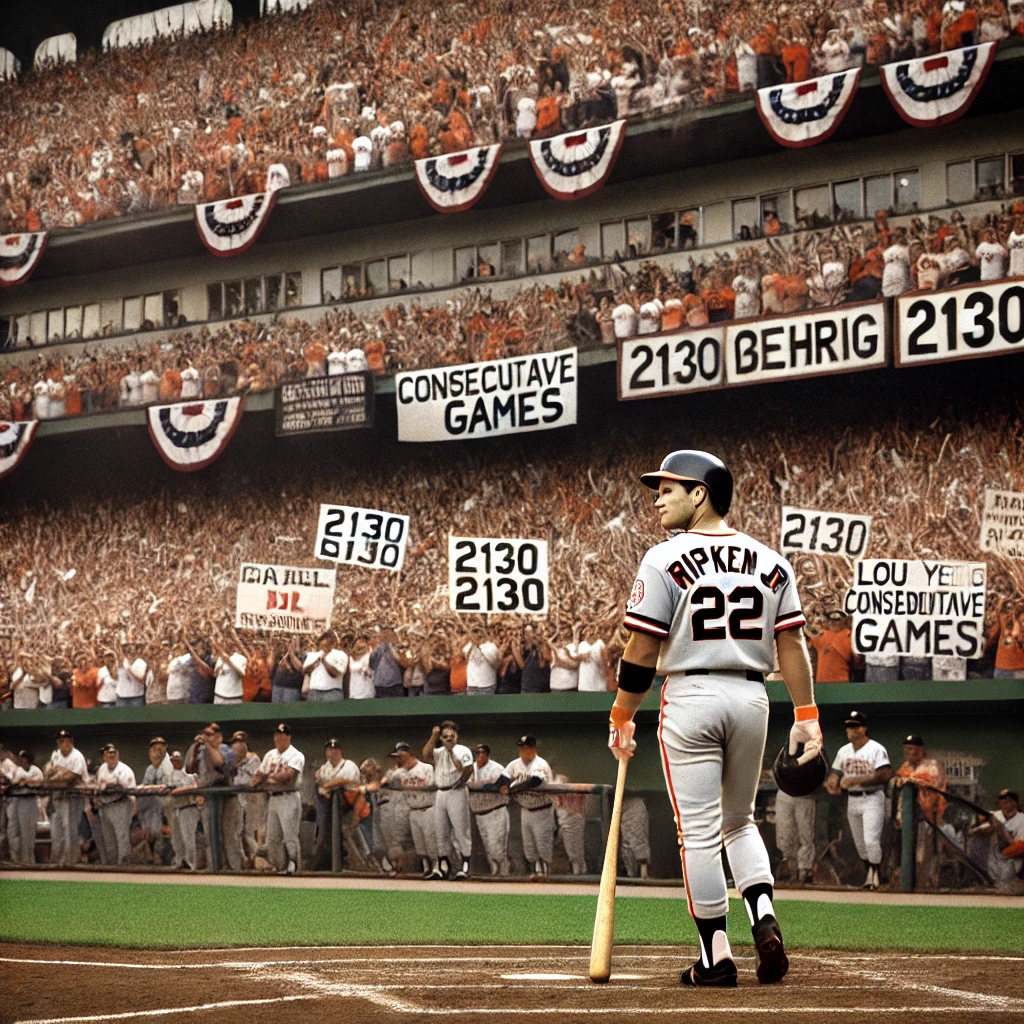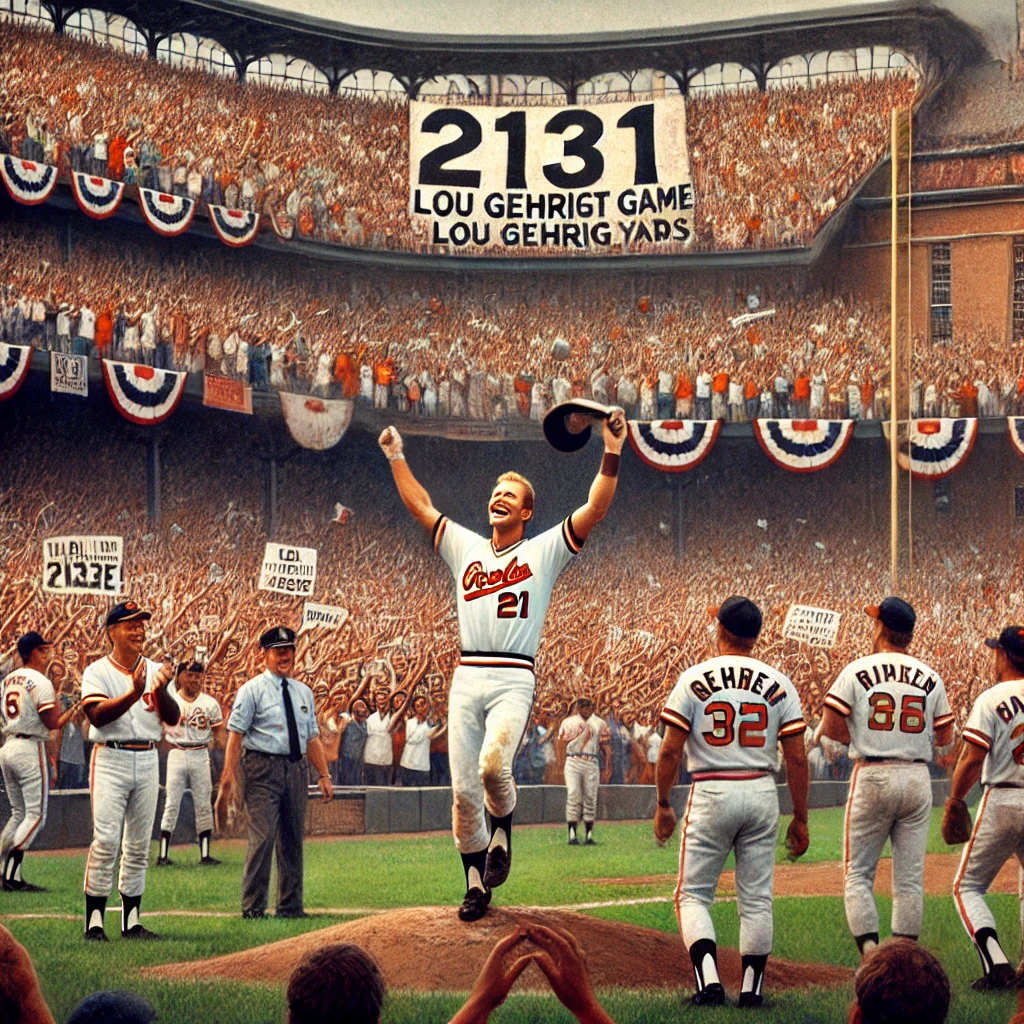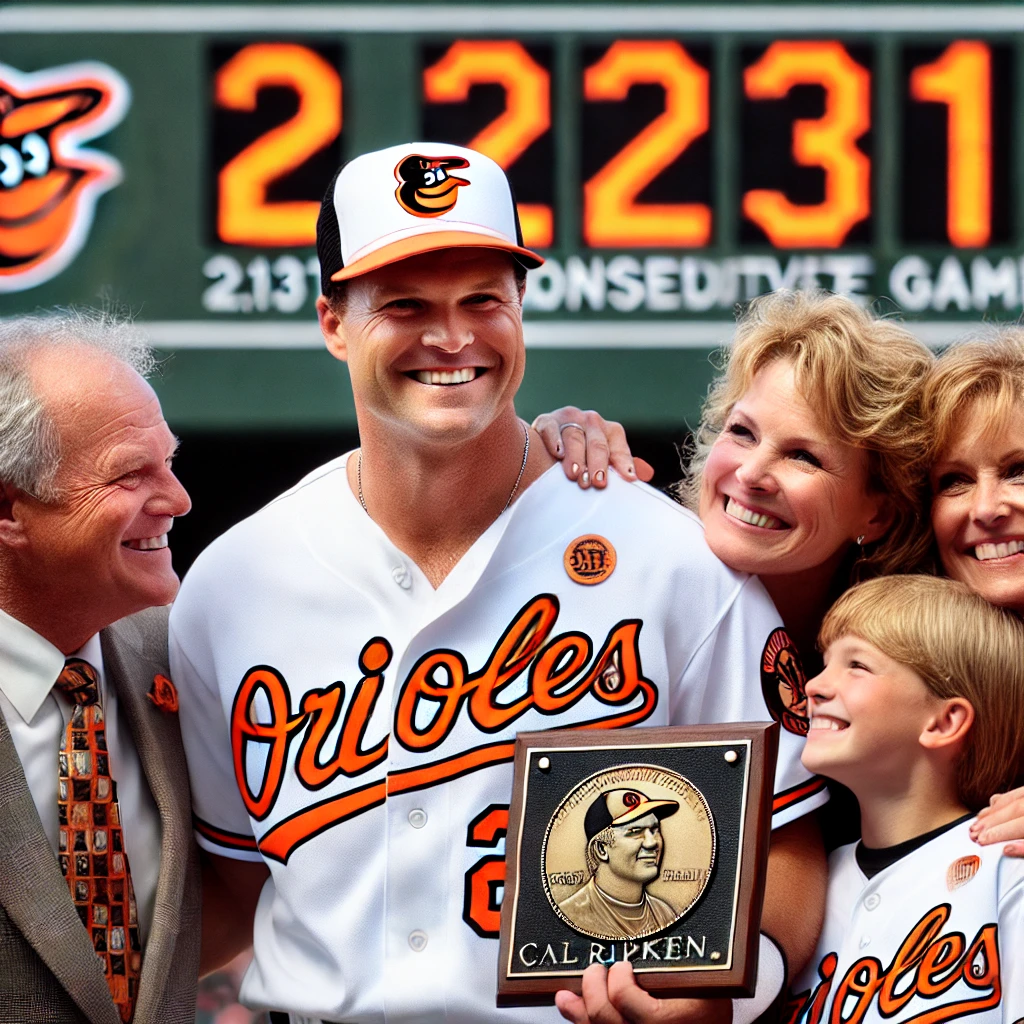On September 6th, 1995, Cal Ripken Jr., the Baltimore Orioles’ legendary shortstop, made history by breaking one of the most revered records in Major League Baseball. By playing in his 2,131st consecutive game, Ripken surpassed the long-standing record set by Lou Gehrig, the New York Yankees’ Hall of Famer, who had held the record for 56 years. This monumental achievement not only cemented Ripken’s place in baseball history but also resonated deeply with fans who admired his dedication, endurance, and love for the game.
Lou Gehrig’s record had long been considered unbreakable. Known as the “Iron Horse,” Gehrig played in 2,130 consecutive games between 1925 and 1939, a feat that stood as a testament to his extraordinary resilience and commitment to the sport. When Ripken began his career with the Orioles in 1981, few could have imagined that he would one day challenge and surpass this iconic milestone.

The Night of September 6th: A Celebration of Excellence
The game on September 6th, 1995, between the Baltimore Orioles and the California Angels, was unlike any other. Oriole Park at Camden Yards was packed with fans eager to witness history in the making. As the game progressed and Ripken’s record-breaking appearance became official in the fifth inning, the crowd erupted into a standing ovation that lasted for 22 minutes, a moment that has since become one of the most memorable in sports history.
Ripken, known for his humility and quiet demeanor, was visibly moved by the outpouring of support. He took a victory lap around the field, shaking hands with fans and acknowledging the significance of the moment. It was a rare display of emotion from a player who had always let his performance on the field speak for itself. The night was not just a celebration of Ripken’s achievement but also a tribute to the perseverance and work ethic that defined his career.

The Journey to 2,131 Games
Cal Ripken Jr.’s journey to breaking Lou Gehrig’s record was a testament to his incredible durability and dedication to the sport. From his debut in 1981, Ripken became known for his consistency, playing every game with the same level of intensity and focus. Injuries, slumps, and personal challenges never deterred him from taking the field, earning him the nickname “The Iron Man.”
Ripken’s streak was not without its challenges. Throughout his career, he faced numerous injuries that could have ended his consecutive games streak. However, Ripken’s determination to play through pain and adversity became a hallmark of his legacy. His commitment to showing up for every game, regardless of the circumstances, inspired not only his teammates but also countless fans who saw in him a model of dedication and perseverance.
The Impact on Baseball and Beyond
Cal Ripken Jr.’s achievement had a profound impact on Major League Baseball and the sports world at large. In the mid-1990s, baseball was still recovering from the 1994 players’ strike, which had left many fans disillusioned with the sport. Ripken’s pursuit of Gehrig’s record and the eventual breaking of it helped restore faith in baseball, reminding fans of the values of hard work, loyalty, and resilience.
The significance of Ripken’s record extended beyond the numbers. It became a symbol of the enduring appeal of baseball, a sport deeply rooted in American culture. Ripken’s achievement was a reminder that, even in an era of increasing commercialization and changing dynamics in professional sports, the fundamental principles of dedication and love for the game still mattered.
A Legacy of Perseverance and Integrity
Cal Ripken Jr.’s career is often defined by the streak, but his contributions to baseball go far beyond that. A two-time American League MVP and 19-time All-Star, Ripken was known for his exceptional skills as both a hitter and a fielder. His versatility and ability to play at a high level over such a long period earned him the respect of his peers and a place among the all-time greats.
Ripken’s impact on the game continued long after he retired in 2001. His commitment to the sport, both on and off the field, has left a lasting legacy. Through his involvement in youth baseball programs and charitable work, Ripken has continued to influence future generations of players, teaching them the importance of perseverance, integrity, and a love for the game.

The Enduring Symbolism of the Streak
The breaking of Lou Gehrig’s consecutive games played record by Cal Ripken Jr. on September 6th, 1995, remains one of the most significant moments in sports history. It is a story of endurance, dedication, and the relentless pursuit of excellence. For many, Ripken’s streak symbolizes the best of what sports can offer—an unwavering commitment to one’s team, a refusal to give in to adversity, and a deep respect for the game and its traditions.
As the years have passed, the significance of Ripken’s achievement has only grown. It stands as a testament to what is possible when talent meets hard work and determination. Ripken’s record, like Gehrig’s before him, has become a benchmark of greatness, admired by fans and athletes alike.
A Moment in Baseball History
The night of September 6th, 1995, will forever be remembered as a defining moment in Major League Baseball. Cal Ripken Jr.’s breaking of Lou Gehrig’s consecutive games played record was more than just a personal milestone; it was a celebration of the enduring values that make baseball a beloved sport. The legacy of that night continues to inspire players and fans, serving as a reminder of the power of perseverance and the timeless appeal of America’s pastime.
